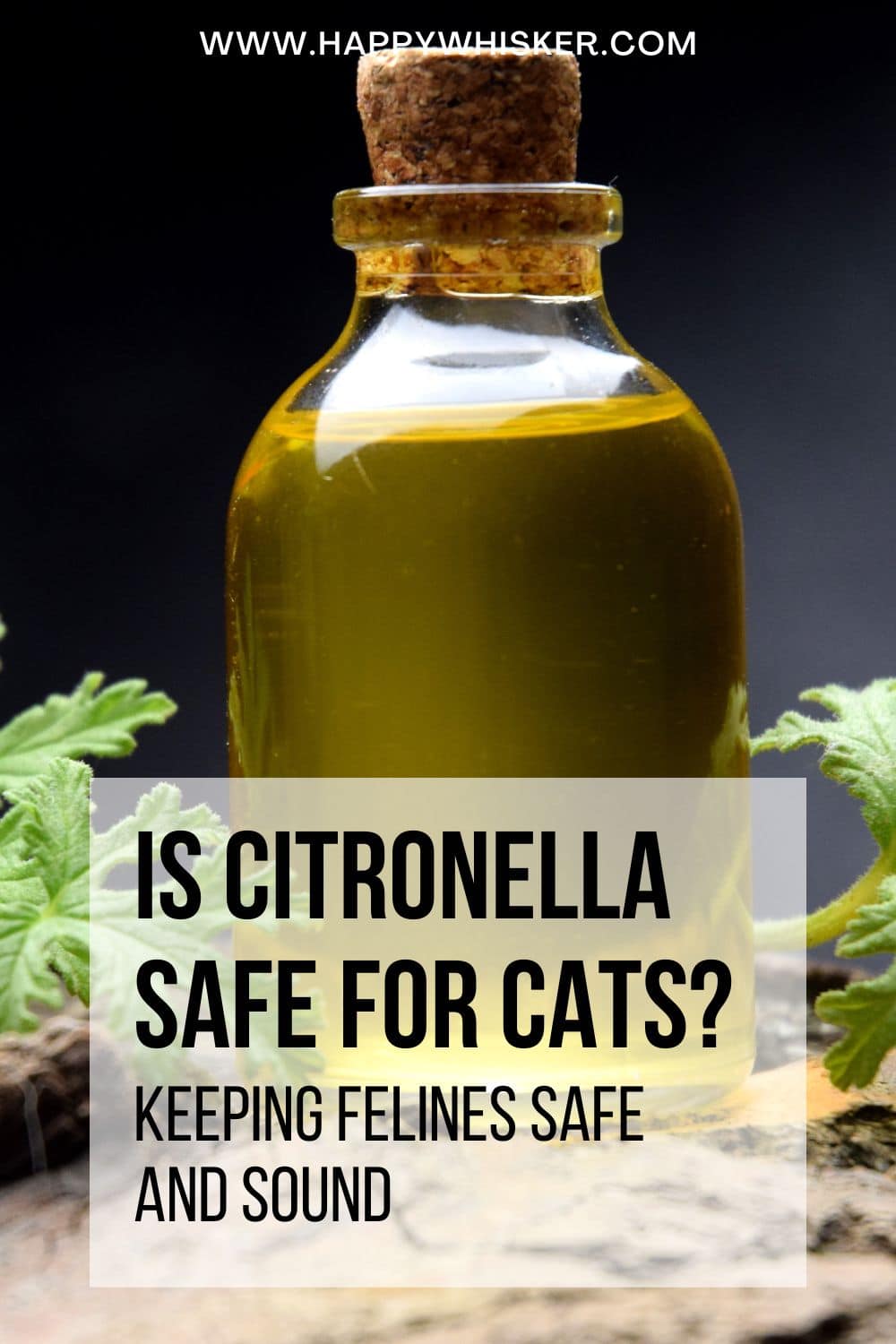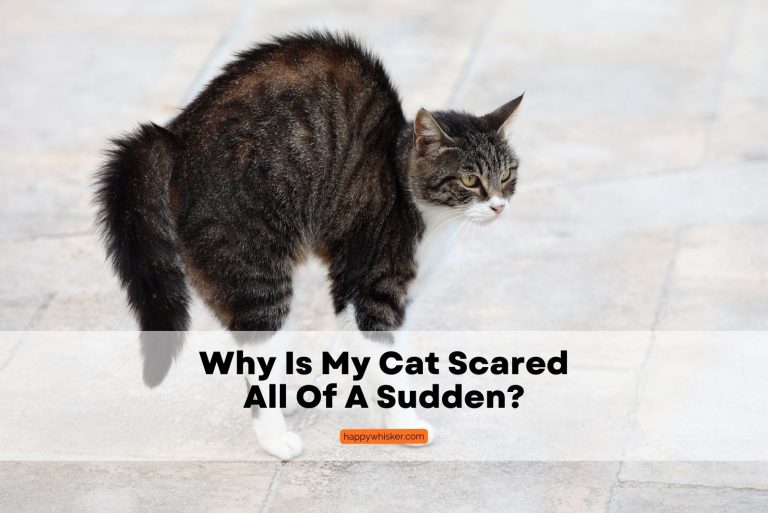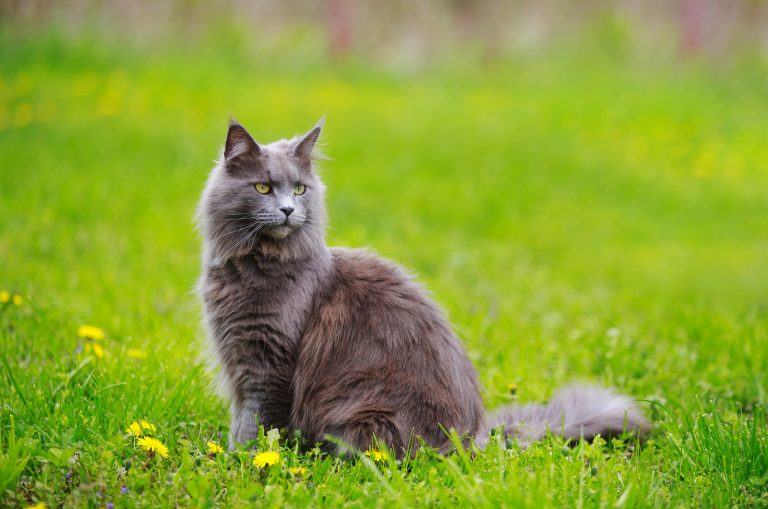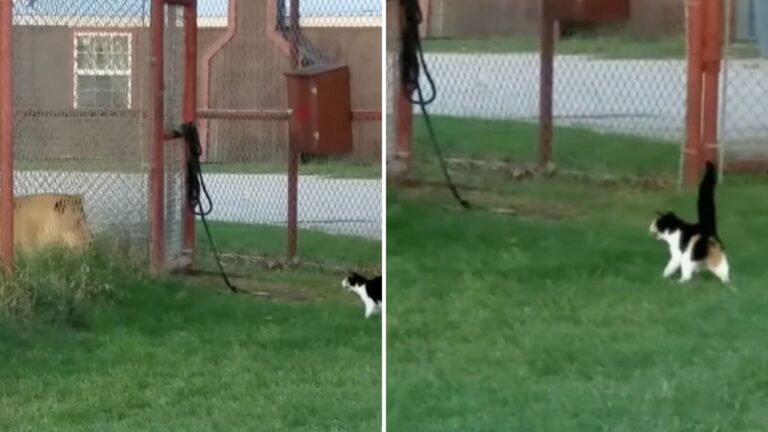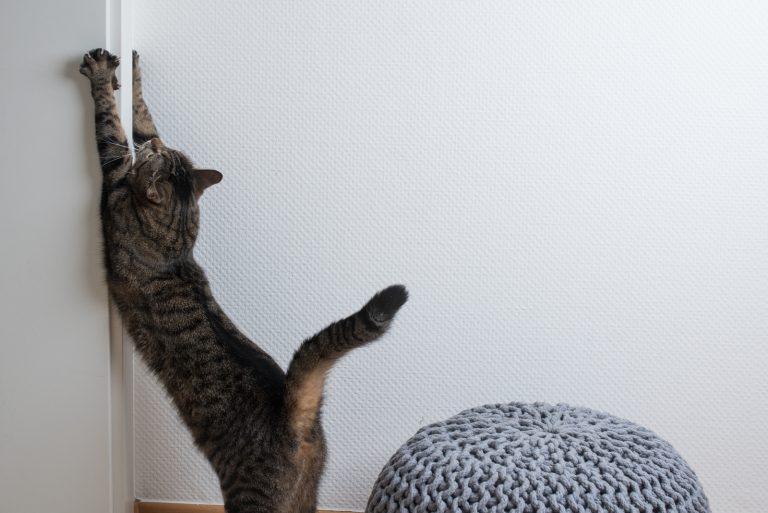Is Citronella Safe For Cats? Keeping Felines Safe And Sound
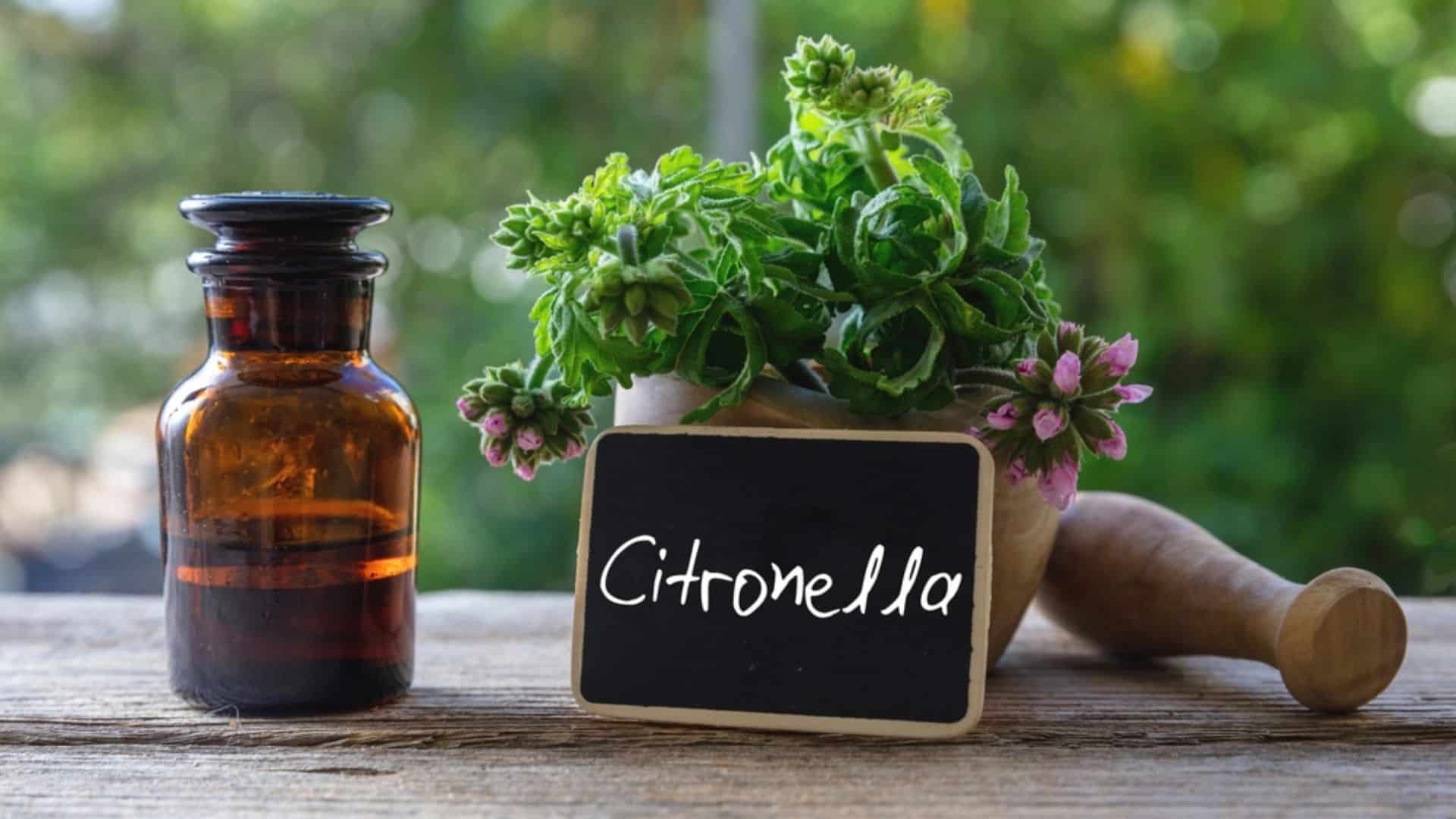
Citronella is a commonly used mosquito repellent that many of us reach for during those hot summer nights. Apart from being an efficient insect repellent, it has a pleasant lemony fragrance that many of us (myself included) enjoy.
Lighting a citronella candle takes two seconds, and the mosquitos are gone for the rest of the evening. However, is citronella safe for cats? Should your cat be around you when you light a citronella candle?
In this article, I will go over the potential toxicity of citronella, in which products it can be found, and what you should do if you notice your feline has decided to snack on citronella, so make sure to read on!
Is Citronella Safe For Cats?
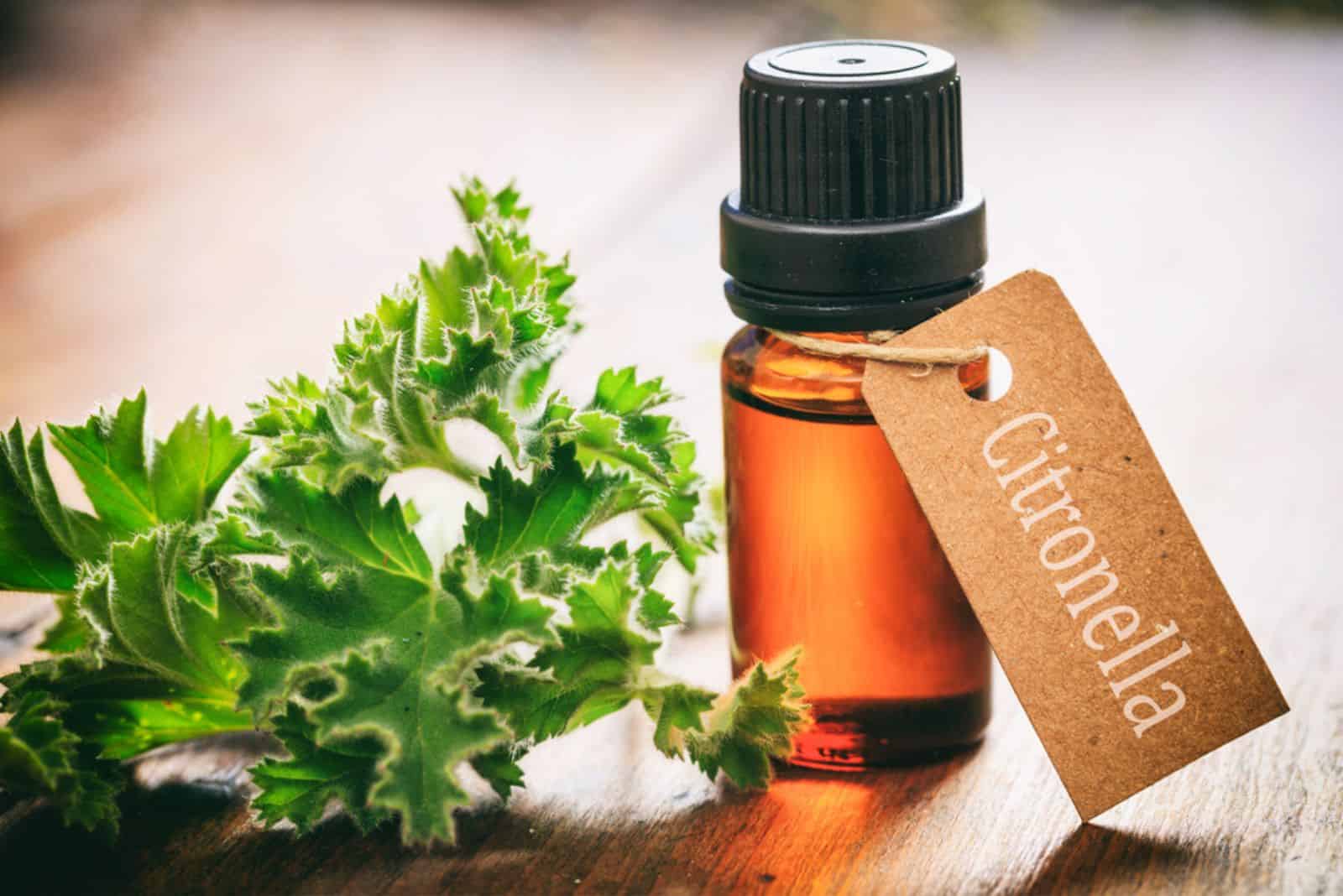
The citronella plant (green grass) is safe for cats, but the extracted essential oil and products that use citronella essential oil are not safe for cats.
Citronella Plant
You are free to keep your citronella plant in your yard, as it is just another plant that poses no threat to your feline’s health.
You might run into advice online that you should keep your pet away from this plant, but in my experience, there is no need to do this, as your cat is not drawn to it in the first place.
If your curious cat eats the plant, there is a risk of a tummy ache, but the same goes if your cat eats any other plant in your garden.
To summarize, citronella, as a garden plant, is just another plant you don’t need to worry about.
Citronella Essential Oil & Oil-Containing Products
Citronella essential oil is potentially toxic for your cat, the same as any other essential oil. You probably already know that you must keep your feline away from all essential oils, as they can cause serious health issues.
When it comes to citronella products, such as candles, sprays, torches, etc., these are safe for human use, but they’re not good for your cat’s health.
This is because most citronella-containing products are made using citronella essential oil, and as we’ve concluded, you need to keep your cat away from essential oils.
Dr. Camille DeClementi, senior director for the ASPCA’s Animal Poison Control Center states, “Citronella candles, oil products and insect coils should also be kept out of pets’ reach.”
Why Is Citronella Essential Oil Dangerous For Cats?
Essential oils can be hazardous to cats whether ingested, administered topically, or inhaled.
Severe liver damage, liver failure, respiratory failure, convulsions, and even death can result from exposure to essential oils, including citronella essential oil.
Cats lack some enzymes necessary for the normal processing of different chemicals found in essential oils, particularly phenols. The liver is the organ most susceptible to failure because phenolic chemicals, present naturally in plants and highly concentrated in essential oils, are the most dangerous.
Hold Up, What Exactly Is Citronella?
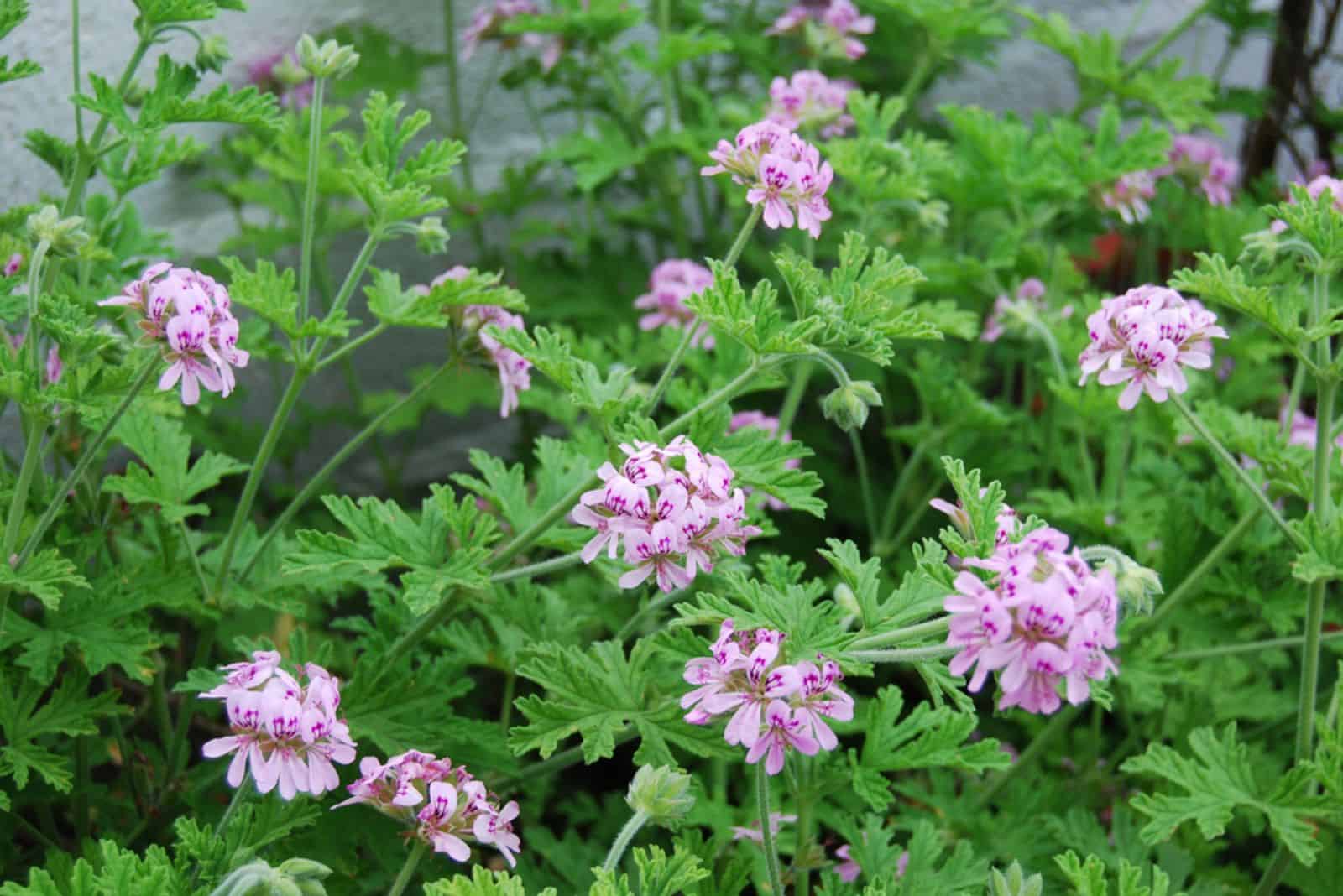
Citronella is a perennial grass and a member of the geranium family. You (or your cat) will likely encounter two citronella grass varieties: Cymbopogon nardus and Cymbopogon winterianus.
These two species are used to produce citronella essential oil. This oil has many applications, used in insect repellent, candles, soaps, aromatherapy, etc.
Citronella has a distinct citrus scent when you crush its leaves and rub the oil on your hand, for instance. Insects are repelled by the scent of the oil (it disrupts their olfactory system) but will not be killed by it. Therefore, citronella oil works as a repellant and does not kill insects.
Citronella is a green grass you might find in someone’s garden due to its nice looks. It’s often confused with lemongrass, as they’re both mosquito repellents, but they’re different plants.
7 Forms Of Citronella Your Cat Might Encounter
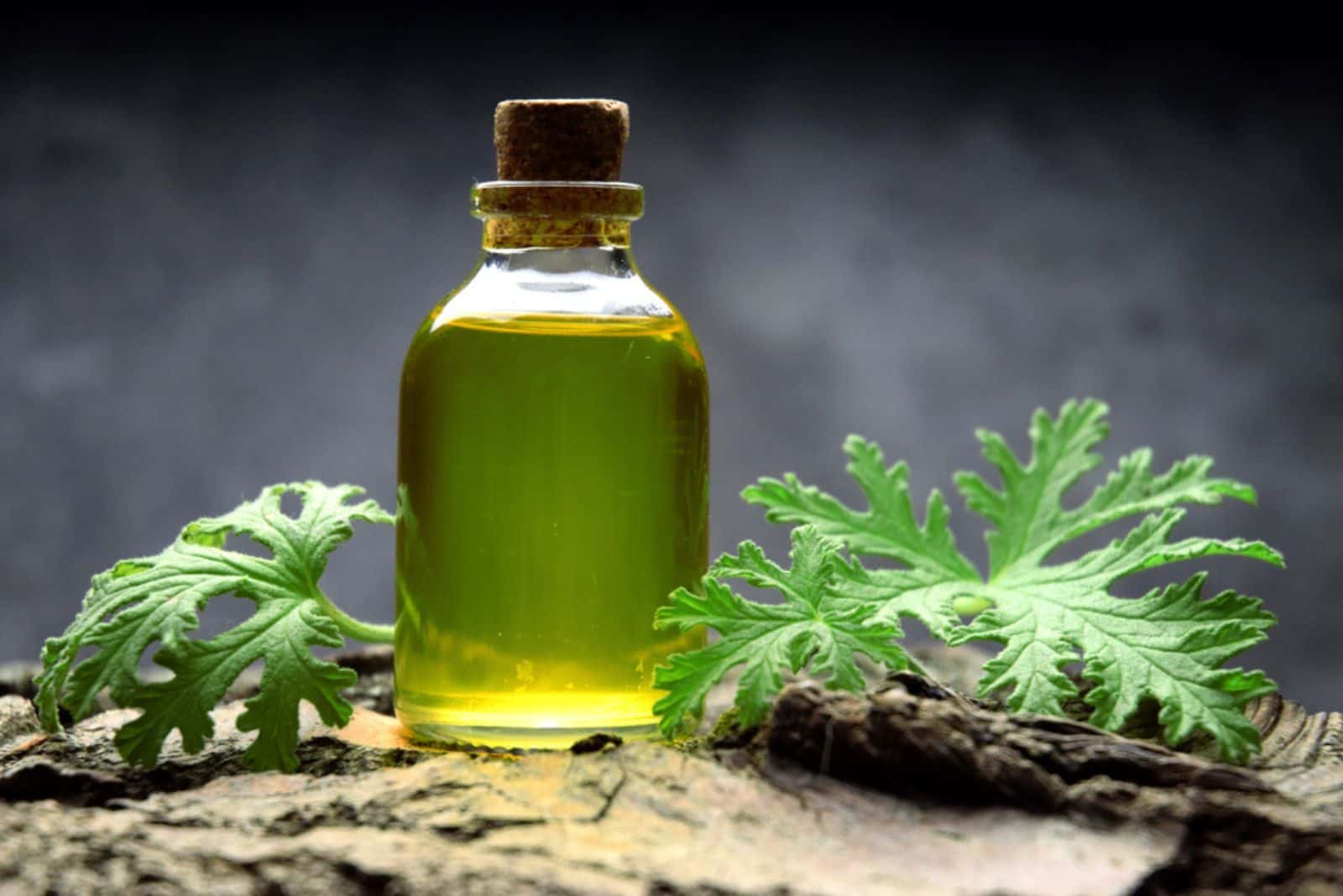
You and your cat can encounter the citronella plant and citronella products containing citronella essential oil. How do you know which product is safe for your kitty and which is not?
Below, I’ll explain the safety concerns behind each citronella-containing product (candles, torches, sprays, collars, and shampoos), the citronella plant, and its essential oil.
1. Citronella Plants
Citronella plants are safe for your cat, meaning you’re free to have them growing in your garden. The only issue that can arise is your cat eating the plant. Although that’s not very likely (cats are not huge fans of eating plants), some curious cats might try it to see how it tastes.
In that case, the cat that has eaten some part of the citronella might encounter serious side effects, such as:
• vomiting,
• muscle weakness,
• hypersalivation,
• difficulty breathing,
• loss of muscle control,
• liver damage,
• or even nervous system damage.
If you’ve seen your cat eating a citronella plant or you suspect it has eaten it, please pay close attention to your cat’s health after ingestion. If you observe adverse side effects arising, I urge you to see a vet as soon as you can, as citronella effects can be very harmful to your cat.
2. Citronella Oil
Citronella essential oil is a concentrated liquid containing plant chemicals that evaporate easily and has a distinct, strong citronella plant scent.
According to many researchers, all essential oils can be hazardous to cats whether ingested, administered topically, or inhaled. Skin irritation, vomiting, hyperthermia, liver damage, liver failure, respiratory failure, convulsions, and even death can result from direct exposure to the oil.
The U.S. Environmental Protection Agency states citronella oil is an insect repellent (used against insects such as mosquitoes, black flies, fleas, and ticks) and an animal repellent.
US EPA also states that, based on scientific studies, it has been proven that citronella oil “poses minimal or no risks to wildlife.” This applies only when it’s used as intended (such as in candles) and not ingested by the animal.
3. Citronella Candles

The active component in citronella candles is citronella oil. As previously mentioned, cats should not be in contact with citronella oil by breathing in it, having it on their skin, or ingesting it.
Therefore, it’s best to avoid lighting a citronella candle in your cat’s presence, especially if you’re in a confined space.
Breathing in the citronella candle fumes can lead to mild respiratory irritation for your cat. Although this might not seem like a huge issue, it can be for cats suffering from asthma or similar breathing difficulties.
If your cat gets exposed to citronella candle fumes, you should take your cat outside to get some fresh air. If you see your cat struggling to breathe, I urge you to take your cat to the vet.
4. Citronella In Garden Torches
Garden torches are great at lighting up your backyard and keeping mosquitos away from you, your family, and your friends. There are also garden torches that burn citronella oil and repel insects. Citronella oil scent is unpleasant for most insects, so they will not come anywhere near it.
Some garden torches on the market contain citronella oil in concentrations higher than in candles.
The American Society for the Prevention of Cruelty to Animals (ASPCA) posts preventive measures every year before the 4th of July to ensure pet safety. Within those measures, they remind pet owners to be careful about using citronella garden torches around their pets.
Enjoying outdoor activities without insects annoying you is excellent, but you must ensure your cat is safe. If any torch fluid spills, you’ll want to keep your pet far away. If your pet rolls in the liquid or walks through it, it could cause chemical burns or skin irritation.
The liquid often used in citronella torches can potentially upset the stomach and lead to breathing difficulties if consumed.
5. Citronella Insect Repellent Spray
You’ve probably heard that you can make your own insect repellent spray. Many essential oils (such as citronella, clove, lemongrass, eucalyptus, peppermint, etc.) are natural insect repellents. Citronella essential oil is especially praised for its ability to repel mosquitos.
DIY insect repellent sprays work by mixing water and an appropriate amount of essential oil. One such mosquito repellent spray can be made using citronella essential oil. There are also citronella-containing insect repellent sprays for you to buy.
So, are DIY citronella sprays or store-bought citronella mists safe for cats? It would be best to be careful when using citronella sprays around your cat. Even though you’re not using the spray with citronella oil in high concentrations, I recommend you not to use it around your cat.
Although your cat will most likely be repelled by the citrus smell, some curious ones might decide to lick the area you just sprayed, which means direct ingestion of citronella oil. This could lead to some unwanted side effects, and you do not want that to happen.
6. Citronella Cat Flea Collar
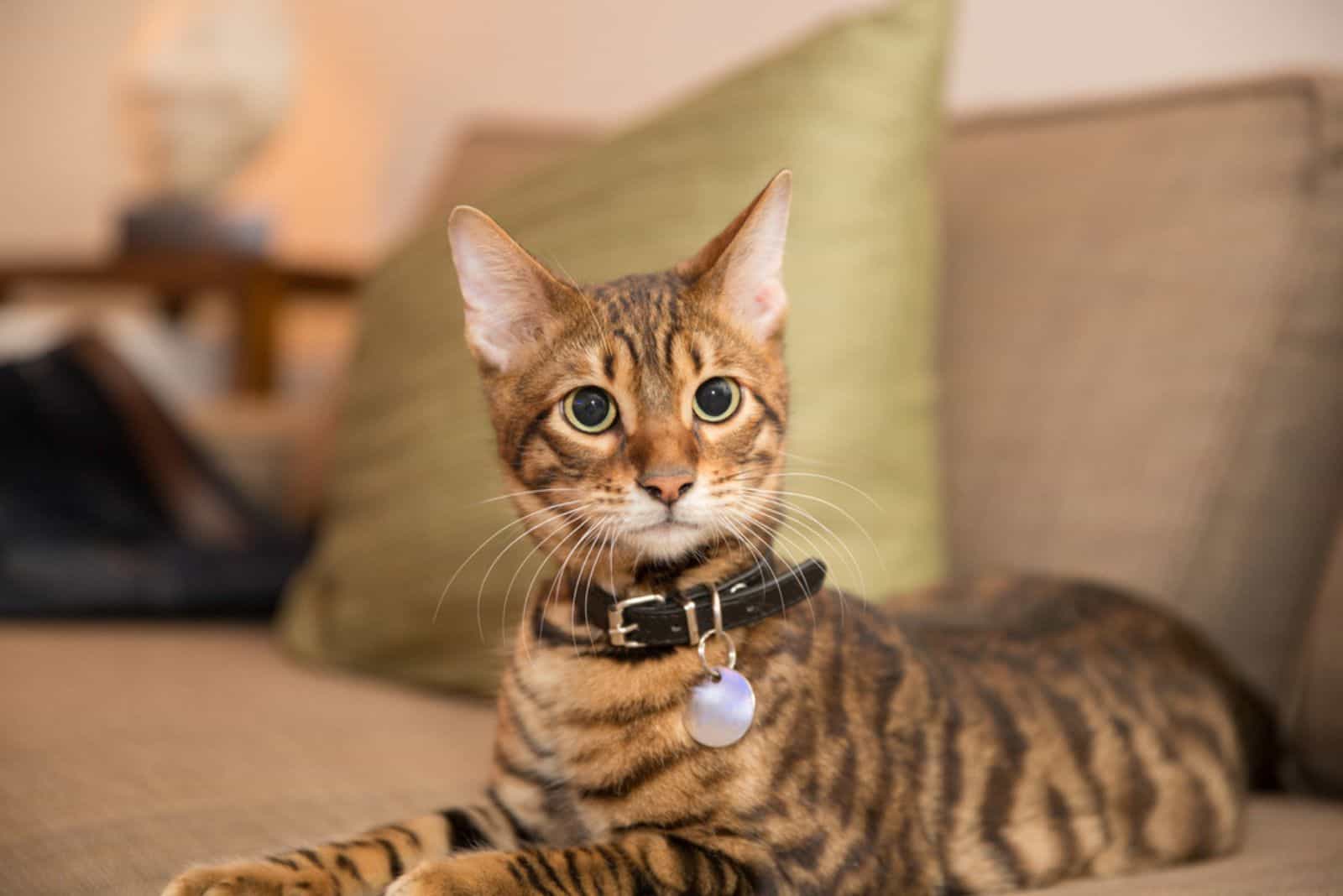
As I’ve mentioned, citronella oil is an excellent insect repellent, including against fleas.
Rosemary and citronella are two components included in most natural flea collars. They are unlikely to poison your cat, but there is another drawback to using these products.
Natural products are frequently unregulated, and a lot of the substances haven’t been put through any testing. Natural flea collars are less likely to poison your cat, but they could still harm its health.
7. Citronella Flea Shampoo
You can also get a citronella flea shampoo for your pet. These shampoos contain citronella essential oil as their active ingredient, alongside other similar substances such as lemongrass.
Cat flea shampoos infused with citronella are safe for adult cats but can be toxic to kittens. However, although these kinds of shampoos are not likely to cause your cat any issues, I would still recommend you stay away from them.
There are many other flea shampoo options for you to choose from, and potentially risking your cat’s health by using these kinds of shampoos is not worth it.
My Cat Seems To Be Sick From Citronella, What Do I Do?
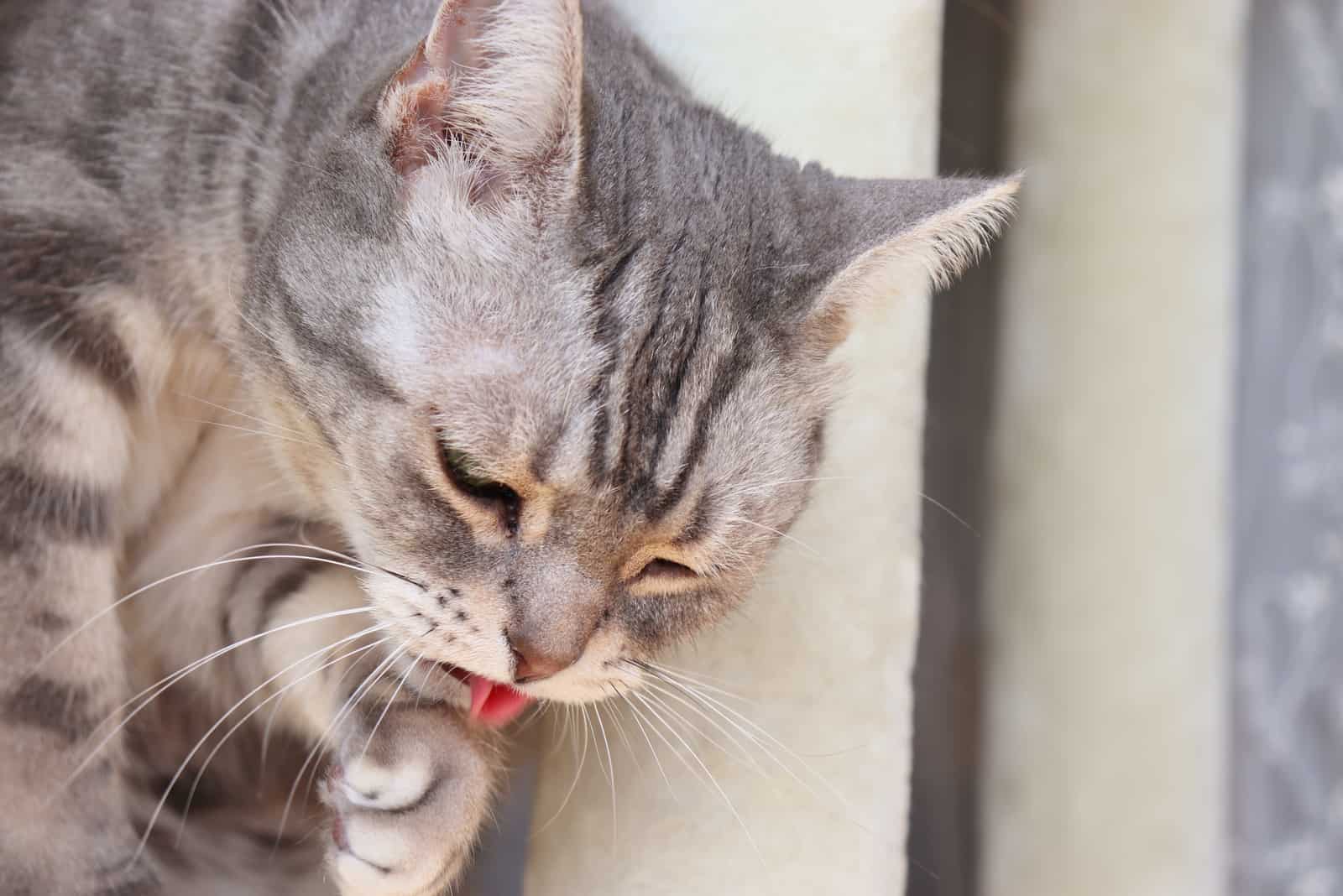
If you’ve noticed your cat has licked or ingested citronella plant, citronella essential oil, or any citronella-containing products (such as candles), you need to pay close attention to your cat’s health in the next few hours, up to a day.
Your cat may experience no side effects, perhaps the amount of citronella your cat has was not high enough to cause adverse effects.
On the other hand, your cat can start experiencing symptoms of citronella toxicity, such as vomiting, difficulty breathing, skin irritation, hypothermia, etc. In that case, you should visit a vet as soon as possible. Citronella toxicity can seriously threaten your cat’s health, so I urge you to act fast.
If you’re unsure what to do, call the Pet Poison Helpline at (855) 764-7661 or ASPCA Animal Poison Control Center at (888) 426-4435, and they will guide you.
6 Insect Repelling Plants You Can Use Instead Of Citronella
If you have a cat that’s naturally very explorative and likes trying new things, I advise against having citronella as an insect-repelling plant in your yard. However, you can use other safer plant options to get rid of those pesky insects.
There are so-called “mosquito plants,” or mosquito-repelling plants, that you can plant in your garden, and they’re safe for cats.
1. Lavender

Have you ever noticed that your lavender plant has remained unharmed by insects or other animals? It is due to their beautiful scent, brought on by the essential oils on the plant’s leaves. This plant is drought-resistant and can thrive in a variety of conditions!
2. Rosemary
Rosemary is another effective insect deterrent. Rosemary is one that many of us are highly familiar with, and mosquitoes, cabbage moths, and carrot flies are all deterred by its woodsy aroma.
Rosemary can be trimmed into various sizes and forms, making excellent borders or decorations. You can enjoy the herb’s aroma and use it to season food, also!
3. Catnip
Due to its euphoric and hallucinogenic effects on our felines, catnip is a common herb frequently used in cat toys and treats. However, it has also long been known for its potent insect-repellent properties, particularly concerning mosquitoes.
The only potential drawback of having catnip in your yard is that it might often attract your neighborhood’s cats. Although, I’m sure your cat will have nothing against always having catnip around!
4. Basil
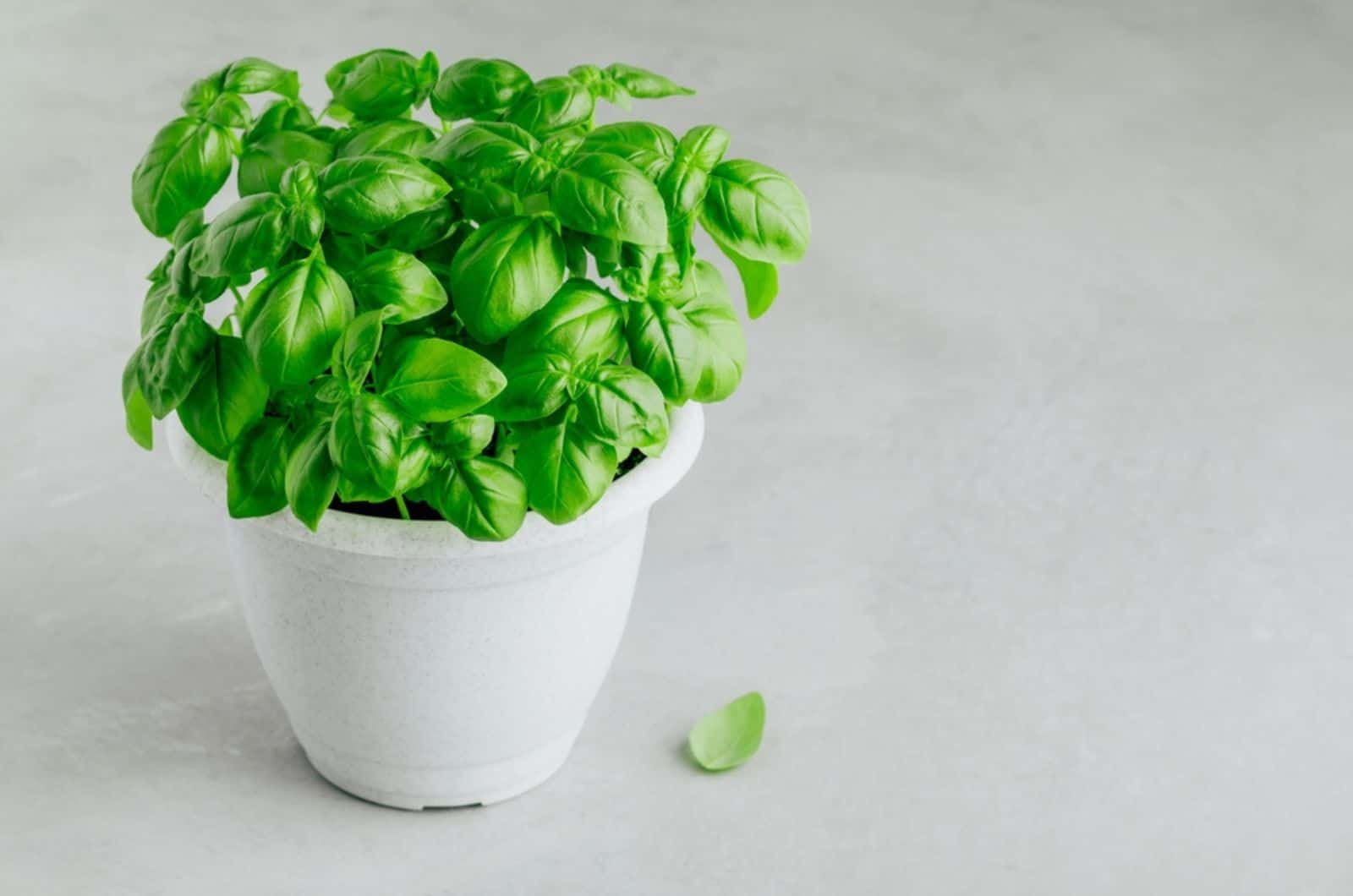
Another herb that serves as a pest deterrent is basil. Pests are deterred by the intense aroma that basil leaves emit. Additionally, since all varieties of basil are effective at warding off flies and mosquitoes, feel free to experiment to find the ideal varieties to incorporate into your garden. You can grow basil in pots, in the garden, or alongside other flowers.
5. Peppermint
Peppermint is a fantastic non-toxic choice for repelling flies, mosquitoes, and ants. There will be fewer bugs the more potent the aroma.
When you wish to add a leaf or two to your afternoon tea, you can easily access the plants by growing them in pots on your patio. Even better, you may use the dried leaves as an organic bug deterrent inside your house.
6. Lemon Balm
Citronellal, which gives lemon balm its lemony fragrance and flavor that bugs find repulsive, is in high concentrations in this plant. Rub the crushed fresh leaves on the skin, especially the ankles, arms, and other regions most exposed to bug bites.
The powerful lemon aroma effectively wards off insects, and the skin absorbs it quite nicely after rubbing. The lemon balm deters gnats and mosquitoes.
Extra Tip: Lemon Peels
If your garden contains citrus scents, cats will most likely avoid your garden. Therefore, you can use citrus fruits like lemons to deter cats.
Lemon peels can be valuable even though most people discard them after using lemons. You can bury the lemon peels in the ground to repel cats by dispersing the peels’ aroma.
Use Of Citronella As A Cat Repellent
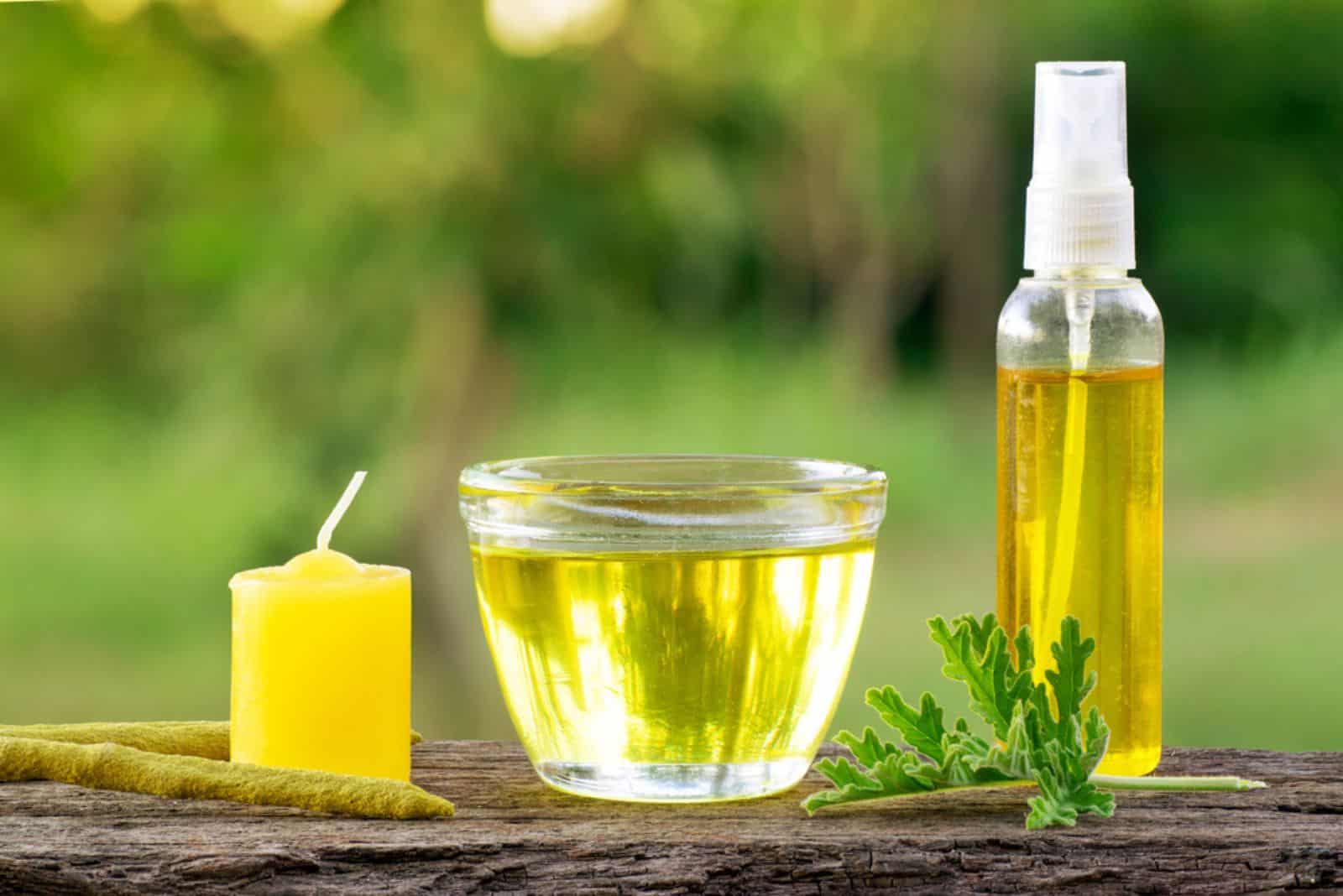
Our felines don’t like strong scents. Their sense of smell is very sensitive, and even a tiny amount of strong scent is bound to make a cat run in the opposite direction. Because of this, many garden owners have turned to using strong scents to deter strays away from their property.
A common cat deterrent is citronella essential oil in the form of sprays, diffusers, candles, and torches. Using citronella oil in candles and torches effectively keeps strays away from your backyard, as the fumes carry the citronella lemony scent cats hate.
Sprays with citronella essential oil are also used and applied in various locations, such as on vegetation, garden fences, and any other areas cats frequent.
Related: What Smells Do Cats Hate? Everything You Need To Know
Final Thoughts
You and your cat might encounter citronella grass, essential oil, and products containing citronella oil, such as candles, torches, sprays, collars, and shampoos. However, is citronella safe for cats?
Citronella grass is technically safe for cats; however, if your cat ingests any part of the citronella plant, it can experience negative side effects such as vomiting, difficulty breathing, muscle weakness, etc. Cats are not likely to make citronella plants their snack, but if you see your kitty has done that, you might need to visit a vet.
Citronella essential oil is considered toxic for cats, the same as any other essential oil. Therefore, keep your citronella essential oil bottle far away from your cat! If your kitty ingests citronella essential oil, I advise you to visit the vet or call ASPCA’s Animal Poison Control Center.
When it comes to products containing citronella oil, keep your kitty away from them too. Ensure your cat is away from the fumes of citronella candles and torches, and refrain from using citronella insect-repelling sprays, collars, and shampoos.
Considering you only want the best for your kitty, it will be easy for you to follow some of the guidelines mentioned in this article! Stay safe and healthy!
Suggested Posts:
Are Sunflowers Toxic To Cats? Learn The “Safe Flowers” List
Is Baby’s Breath Toxic To Cats? You Need To Know This
Like this post? Share or pin it for later!
